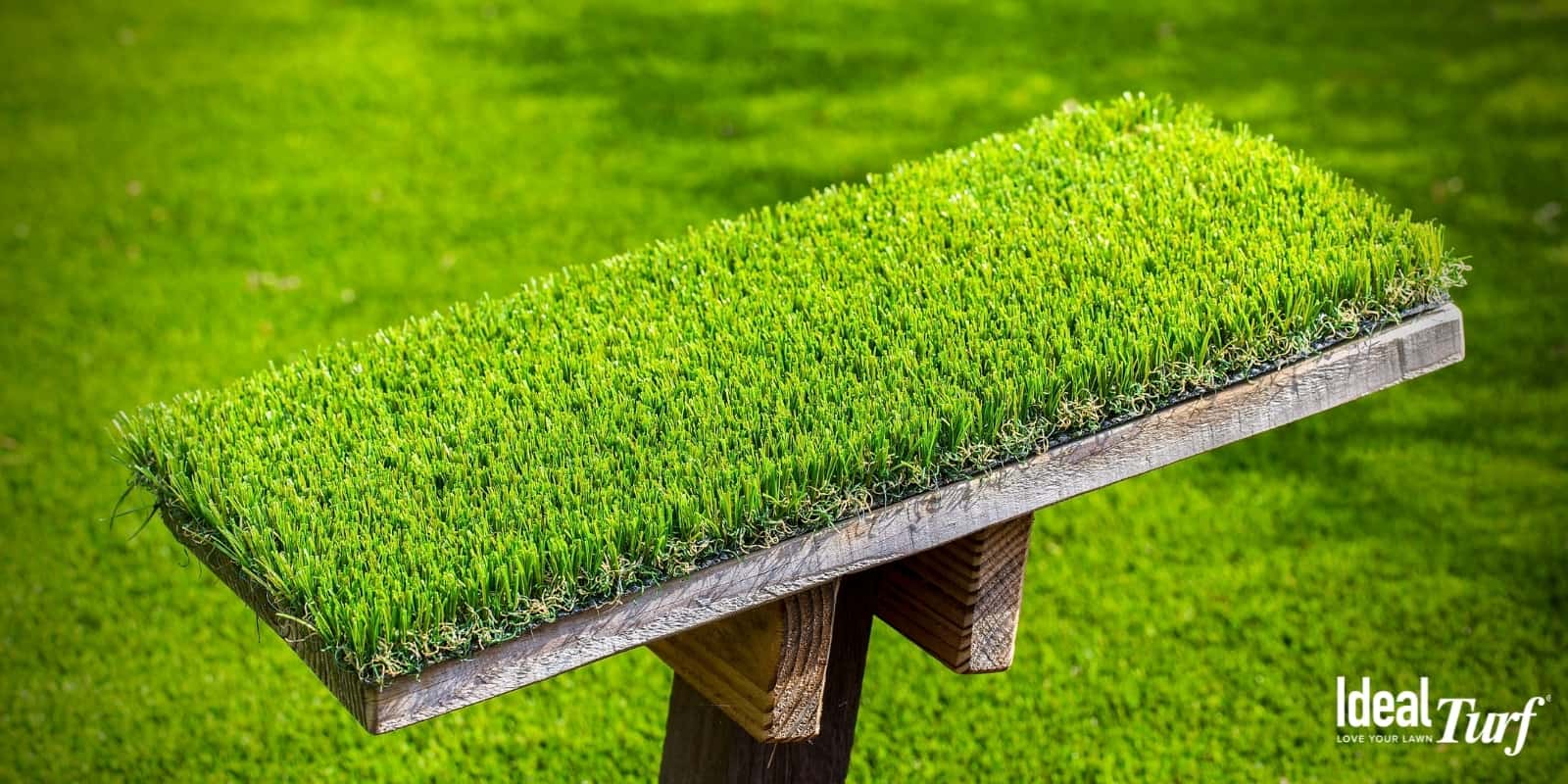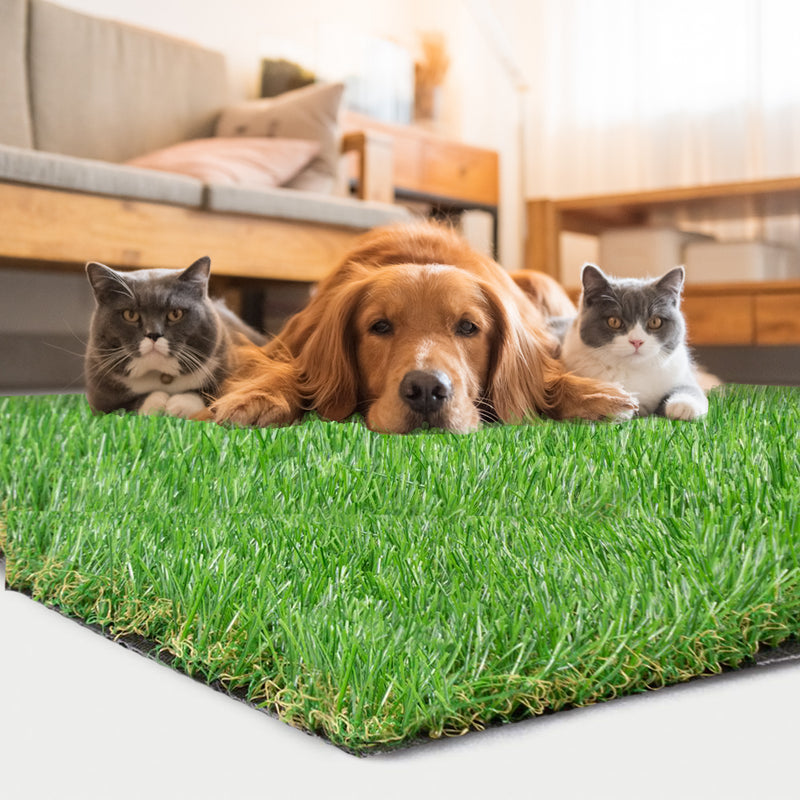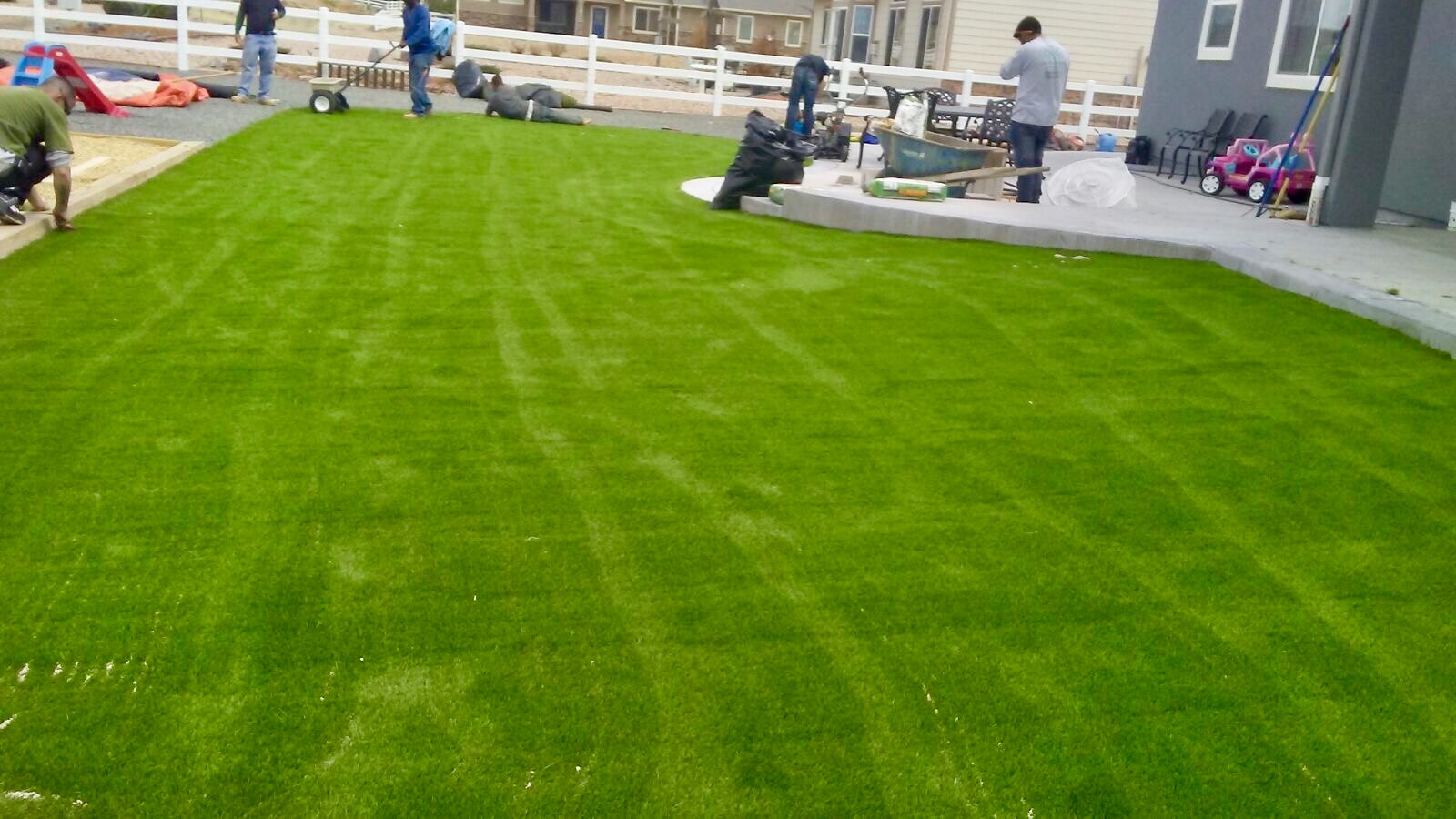Delve Into the Environmental Conveniences of Opting for Artificial Turf Solutions
The adoption of artificial lawn solutions provides a compelling opportunity to attend to pushing environmental challenges. By significantly lowering water use and lessening the application of unsafe chemicals, these alternatives not just promote sustainable landscaping but also secure local communities. In addition, the reduced carbon impact connected with reduced maintenance tasks contributes to an extra lasting technique to land management. The implications of these benefits prolong past simple conservation efforts, elevating inquiries about their long-term effect on environment conservation and overall environmental equilibrium. Discovering these measurements exposes an intricate interplay worth considering.
Water Conservation Benefits
One of the most significant benefits of synthetic turf is its capacity to preserve water. In contrast, synthetic lawn does not require watering, considerably minimizing the overall need for water resources.
By eliminating the need for normal watering, fabricated grass adds to sustainable landscape methods and assists minimize the ecological influence of extreme water consumption. Moreover, the preservation of water reaches the reduction of drainage, which can result in soil disintegration and river contamination.
Additionally, the installation of synthetic grass allows districts and house owners to assign water resources a lot more efficiently, focusing on necessary usages such as drinking water and agriculture. The shift towards artificial turf not only advertises responsible water use but likewise aligns with wider ecological goals targeted at preserving natural resources.
As communities progressively prioritize sustainability, the water conservation benefits of synthetic grass provide a compelling instance for its adoption in commercial and residential landscaping jobs.
Lowered Chemical Usage
The transition to synthetic grass considerably lowers the dependence on chemical therapies generally used in all-natural lawn upkeep. Traditional turf management commonly entails the application of chemicals, fertilizers, and herbicides to advertise development and control bugs. These chemicals can present dangers to human wellness, local wild animals, and the atmosphere, adding to dirt and water contamination.
In contrast, man-made lawn eliminates the requirement for these hazardous substances. By minimizing the release of synthetic substances right into the ecological community, synthetic lawn promotes healthier dirt and water systems.
Furthermore, the absence of chemical runoff related to man-made lawn setups assists shield neighborhood waterways from pollution, supporting water life and preserving biodiversity. Turf installation phoenix az. As areas progressively prioritize sustainable practices, choosing fabricated lawn presents a practical service that aligns with environmental preservation objectives. With this change, home owners can appreciate rich environment-friendly areas without endangering ecological health and wellness, paving the way for a much more sustainable future
Reduced Carbon Footprint

In addition, the installment of fabricated grass can cause considerable water conservation. All-natural yards need considerable amounts of water for irrigation, which not only contributes to the carbon footprint linked with water removal and treatment however additionally strains local water sources. On the other hand, synthetic grass requires marginal maintenance, needing no watering, thus substantially reducing water use and its linked power prices.
Furthermore, the longevity of synthetic grass adds to its reduced carbon impact. With a life-span of up to 15 years or more, the requirement for frequent substitutes is decreased, leading to much less waste and reduced power consumption in manufacturing and throwing away conventional turf options. Overall, fabricated grass provides a sustainable alternative for eco aware landscaping.
Habitat Preservation
Habitat preservation is an essential consideration in the discussion over landscaping options, specifically when contrasting synthetic grass to all-natural grass. All-natural grass yards usually call for comprehensive maintenance, including using herbicides, fertilizers, and chemicals, which can adversely influence regional ecosystems. These chemicals can leach navigate to this site right into the dirt and waterways, harming indigenous vegetation and fauna and interfering with regional habitats.
Synthetic turf removes the demand for dangerous chemicals, therefore shielding close-by wildlife and keeping the integrity of bordering environments. The setup of artificial grass can lead to the conversion of former yard areas right into even more biodiverse landscapes, such as pollinator gardens or native plant locations, which can sustain local wildlife.
Inevitably, the shift to man-made lawn not just preserves water and minimizes maintenance initiatives however additionally promotes a much more unified relationship in between human tasks and the natural surroundings, promoting environment preservation while doing so.
Long-Term Sustainability
Lasting sustainability is an essential consider evaluating the benefits of synthetic grass over standard yard yards. Among one of the most significant benefits of synthetic turf is its sturdiness; it can last as much as 15-20 years with marginal maintenance, whereas all-natural turf needs frequent reseeding and substitute. This longevity minimizes the need for constant resources, such as water, plant foods, and pesticides, which are important for preserving a healthy and balanced turf yard.
In addition, synthetic grass adds to a reduction in carbon discharges connected with lawn treatment equipment. Typical yards often call for gas-powered mowers, trimmers, and blowers, every one of Read Full Article which add to air pollution. Arizona turf. In comparison, synthetic grass eliminates the need for such equipment, advertising a cleaner setting
In addition, the manufacturing of synthetic grass progressively utilizes recycled products, enhancing its sustainability account. As producers embrace environmentally friendly techniques, the ecological impact of synthetic grass proceeds to decrease.

Conclusion
The adoption of synthetic grass options presents substantial ecological advantages, including substantial water preservation, lowered reliance on hazardous chemicals, and a reduced carbon impact. Furthermore, synthetic grass help in preserving natural environments by reducing land disruption and promoting long-lasting sustainability through the use of durable materials. Collectively, these factors highlight the possibility of synthetic grass to add favorably to environmental wellness and offer a sensible alternative to standard landscape design techniques in a significantly resource-conscious globe.
In comparison, man-made turf does not need watering, substantially reducing the general demand for water resources. By minimizing the launch of artificial compounds right into the ecosystem, synthetic turf promotes healthier dig this dirt and water systems.
Moreover, the installment of artificial grass can result in substantial water conservation. In comparison, fabricated lawn needs minimal upkeep, requiring no watering, consequently significantly decreasing water usage and its connected power costs.
